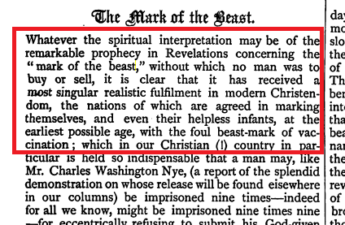
by Stephen Halbrook
See also:
Health: It’s About Nutrients — NOT Vaccine Antibodies
Demolishing the Antibody Narrative: Measles Immunity can be Attained with ZERO Antibodies
Demolishing the Antibody Narrative: HIV Antibodies DO NOT Combat HIV
Demolishing the Antibody Narrative: Study of VSV Virus CHALLENGES Role of Antibodies
Demolishing the Antibody Narrative: When Antibodies might INCREASE Disease Severity
If the aforementioned challenges to the vaccine-antibody narrative are not enough, here are some more.
From this article by Dr. Sherri Tenpenny (“The Belief in Vaccines”):
Vaccines are said to confer protection by causing the development of antibodies. However, there are many references in CDC documents (the Highest Authority in the land regarding vaccines) which reveal that antibodies don’t necessarily protect us from infection. Here are a few examples from medical journals and CDC documents:
Pertussis: “The findings of efficacy studies have not demonstrated a direct correlation between antibody response and protection against pertussis disease.” MMWR March 28, 1997/Vol.46/No. RR-7, p.4
H. Flu (HiB): “The antibody contribution to clinical protection is unknown.”
—HibTITER package insert
“The precise level of antibody required for protection against HiB invasive disease is not clearly established.”
http://www.cdc.gov/nip/publications/pink/hib.pdf.Smallpox: “Neutralizing antibodies are reported to reflect levels of protection, although this has not been validated in the field.” JAMA June 9,1999, Vol. 281, No. 22, p.3132
From a report on tetanus antibodies:
Severe (grade III) tetanus occurred in three immunized patients who had high serum levels of anti-tetanus antibody. The disease was fatal in one patient. One patient had been hyperimmunized to produce commercial tetanus immune globulin. Two patients had received immunizations 1 year before presentation. Anti-tetanus antibody titers on admission were 25 IU/ml to 0.15 IU/ml by hemagglutination and ELISA assays; greater than 0.01 IU/ml is considered protective. Even though one patient had seemingly adequate anti-tetanus titers by in vitro measurement (0.20 IU), in vivo mouse protection bioassays showed a titer less than 0.01 IU/ml, implying that there may have been a hole in her immune repertoire to tetanus neurotoxin but not to toxoid. This is the first report of grade III tetanus with protective levels of antibody in the United States. The diagnosis of tetanus, nevertheless, should not be discarded solely on the basis of seemingly protective anti-tetanus titers.
Crone NE, Reder AT. Severe tetanus in immunized patients with high anti-tetanus titers. Neurology. 1992 Apr;42(4):761-4. doi: 10.1212/wnl.42.4.761. PMID: 1565228. Retrieved February 1, 2024, from https://pubmed.ncbi.nlm.nih.gov/1565228/
From the CDC on the ACAM2000 smallpox vaccine:
No immune correlate of protection (i.e., minimum threshold level of antibodies needed to prevent symptoms) has been established, and clinical efficacy of ACAM2000 against mpox is unknown.
Centers for Disease Control, ACAM2000 Vaccine (Updated October 21, 2022). Retrieved February 1, 2024, from https://www.cdc.gov/poxvirus/mpox/interim-considerations/acam2000-vaccine.html
From the Journal of Clinical Microbiology:
However, unlike even low-titer immune responses to natural infection, serological responses engendered by vaccination cannot be assumed to be protective. For example, despite EIA determinations of high seroconversion rates following vaccination with the Rubini vaccine strain, this particular vaccine afforded virtually no protection against mumps disease.
Mauldin J, Carbone K, Hsu H, Yolken R, Rubin S. Mumps virus-specific antibody titers from pre-vaccine era sera: comparison of the plaque reduction neutralization assay and enzyme immunoassays. J Clin Microbiol. 2005 Sep;43(9):4847-51. doi: 10.1128/JCM.43.9.4847-4851.2005. PMID: 16145156; PMCID: PMC1234049. Retrieved February 1, 2024, from https://www.ncbi.nlm.nih.gov/pmc/articles/PMC1234049
Finally, from the IRIS Research Center, which brings us back to what we have said from the beginning — it is about nutrition (as part of cell-mediated immunity), not vaccine-induced antibodies:
Finally, adjuvanticity is more often evaluated in terms of antigen-specific antibody titers induced after parenteral immunization. It is known that, in many instances, antigen-specific antibody titers do not correlate with protection. In addition, very little is known on parameters of cell-mediated immunity which could be considered as surrogates of protection. Tailoring of new adjuvants for the development of vaccines with improved immunogenicity/efficacy and reduced reactogenicity will represent one of the major challenges of the ongoing vaccine-oriented research.
Del Giudice G, Podda A, Rappuoli R., What are the limits of adjuvanticity? IRIS Research Center, Chiron SpA, Via Fiorentina 1, 53100, Siena, Italy. Retrieved February 1, 2024, from https://web.archive.org/web/20130521145519/http://www.ncbi.nlm.nih.gov/pubmed/11587808?dopt=Abstract
If you find this site helpful, please consider supporting our work.


